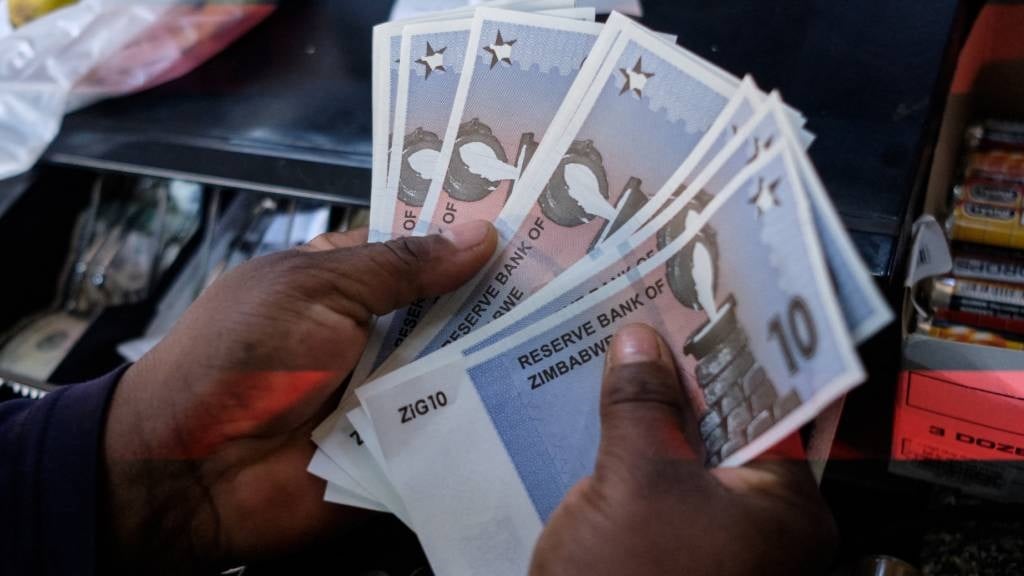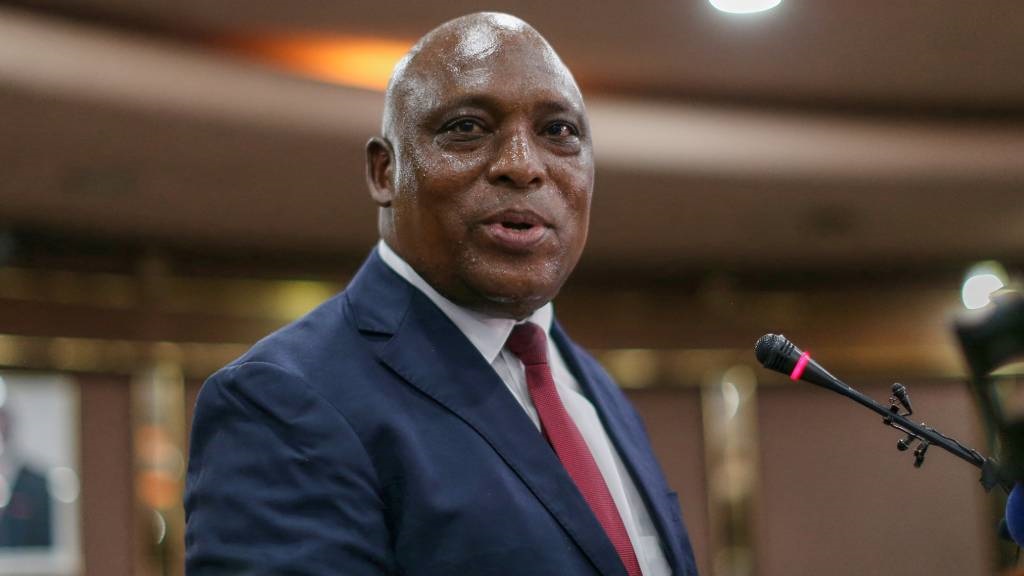
- The Zimbabwe Gold (ZiG) bank notes have been introduced.
- The money can't buy fuel, gas, or trade outside the country.
- The Reserve Bank of Zimbabwe said experts from the World Bank assisted them in formulating the currency.
The notes and coins for Zimbabwe's sixth currency since independence in 1980, Zimbabwe Gold (ZiG), hit the streets this week as the government makes yet another attempt to tame inflation.
The money has coins worth 1, 2, and 5 ZiG, and notes for denominations between ZiG10 and ZiG200.
President Emmerson Mnangagwa pleased with the public's reception of the ZiG so far.
"I commend all Zimbabweans for the manner in which we have adopted and are protecting the use of our currency," he said.
The ZiG, according to the government, is backed by 2.5 tonnes of gold and other minerals, such as diamonds, thus making it a "structured currency".
READ | New release of ZiG rocks the rand at first – but it's the butt of many a joke in Zimbabwe
Reserve Bank of Zimbabwe (RBZ) governor John Mushayavanhu told the media that the ZiG was a result of wide consultations that involved experts from the World Bank.
The governor vowed that, unlike his predecessors, the business of "wantonly" printing money wouldn't be tolerated under him.
Pay more if you pay in ZiG
The money is already available in banks countrywide with individual withdrawal limits pegged at ZiG3 000 (about R5 460) weekly for individuals.
For corporates, the weekly withdrawal is ZiG30 000 (R54 560) while schools, hospitals, clinics and local authorities can get ZiG250 000 (R455 000) monthly, and government departments can withdraw ZiG300 000 (R545 600) monthly.
For vendors, in the second-largest city of Bulawayo, there's optimism that the currency could at least for some time be a solution.
Sandra Moyo said:
The official rand to ZiG rate in Zimbabwe places the latter in a stronger position.
However, on the black market, the ZiG has already lost value barely a month since its digital introduction.
"We do simply sell our things more expensive in the ZiG so that we have room to buy the costly forex on the streets. In some cases, this discourages people from buying using the ZiG when they have forex, which is more competitive," Moyo said.
"Therefore, as long as the ZiG does not earn the bad money tag, we are ready to trade."
Public transport operators on local routes are yet to accept the ZiG.
"Our challenge is that we buy fuel in forex. We are comfortable charging in rands and American dollars. We don't have a ZiG fare for now," said Taruvinga Zhou, a transport operator.
Air Zimbabwe and Fast Jet are the only airlines accepting ZiG payments.
In 2022, Zimbabwe owed South African Airways (SAA), Emirates and other international airlines a total of $177.6 million in funds that could not be repatriated due to currency shortages.
Economists say those airlines might stick to foreign currency charges instead of ZiG.
Legacy of currency crisis
Currency woes are an all-familiar story in Zimbabwe.
At the turn of the millennium, the economy started deteriorating.
This was against the backdrop of farm invasions, government corruption, and violation of democracy and human rights resulting in international isolation of the Robert Mugabe regime through sanctions by the European Union (EU), the United States (US) and withdrawal from the Commonwealth.
Similar to past episodes when introducing a new currency, the regime in Harare slashed zeros which accumulated due to inflation that had eroded almost 80% of a currency commonly referred to as the Real Time Gross Settlement (RTGS), but denominated as the Zimbabwe dollar.
On 5 April, the RBZ announced that it was introducing the ZiG, when physical notes of the RTGS were already rejected by the public.
The highest denomination (Z$100) was not enough to buy a loaf of bread which cost, at the time, Z$30 000.
This meant that bread could be bought in rand, US dollars, or using the RTGS in electronic form.
The News24 Africa Desk is supported by the Hanns Seidel Foundation. The stories produced through the Africa Desk and the opinions and statements that may be contained herein do not reflect those of the Hanns Seidel Foundation.




 Publications
Publications
 Partners
Partners



























